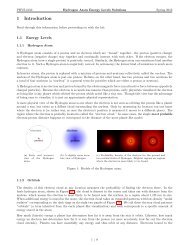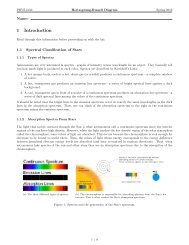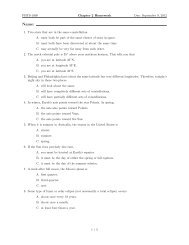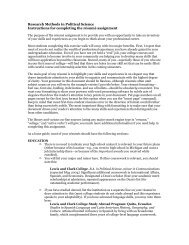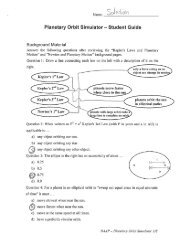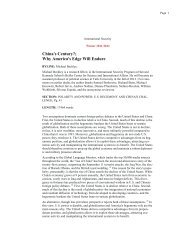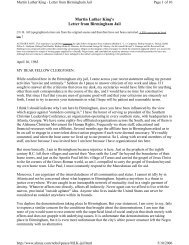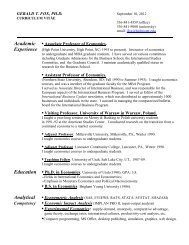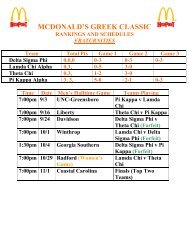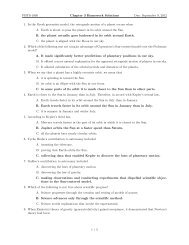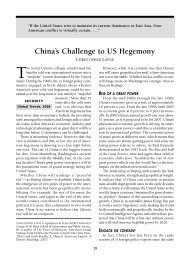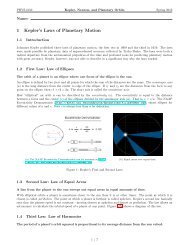Course syllabus - High Point University
Course syllabus - High Point University
Course syllabus - High Point University
Create successful ePaper yourself
Turn your PDF publications into a flip-book with our unique Google optimized e-Paper software.
COURSE TOPIC SCHEDULE AND MAJOR ASSIGNMENT DEADLINES<br />
The typical reading load in this class is 75-100 pages each week, which should be completed<br />
before the applicable seminar. Please consult the on-line version of this document for more<br />
detail and links to your readings and assignments. Many of the readings will be<br />
downloaded and require a password to be opened: icecream<br />
UNIT I: UNDERSTANDING STATE BEHAVIOR<br />
January 9 (M)—Introduction to the course<br />
January 11 (W)—What is the study of “International Relations” about<br />
January 13 (F)—Getting started with some basic concepts<br />
January 16 (M)—Martin Luther King Day, no class<br />
January 18 (M)—What are the defining qualities of “the modern state system”<br />
January 20 (F)—How has the international system of global power evolved in the in the 20th C<br />
January 23 (M)—Leaders, the sociopolitical structures, or the international system: How do “levels” of<br />
analysis help us to predicts what countries do<br />
January 25 (W): How can the theories of “realism” and “liberalism” help us to predict state actions<br />
January 27 (F)—Is international politics what we (or at least what those of us of who are well off) choose to<br />
make it “Marxist” and “constructivist” theories of state behavior<br />
January 30 (M)—Is globalization a new international system with different rules of state behavior<br />
February 1 (W)—How is globalization transforming states and societies in the developing world<br />
February 3 (F)—Examination 1<br />
UNIT II: INTERNATIONAL REGIMES, BEHAVIOR, & INSTITUTIONS<br />
February 6 (M)—Who needs international organizations What are the alternatives<br />
February 8 (W)—Why and how contemporary war is waged<br />
February 10 (F)—Is there an international solution to national insecurity<br />
February 13 (M)—Paper 1 is due electronically and in hard copy by the start of class<br />
February 13 (M) & 15 (W)—How does the United Nations work and what does it do<br />
February 17 (F)—Can we make the United Nations work better to reduce international conflict<br />
February 20 (M)—Is there an international solution to the proliferation of weapons of mass destruction<br />
February 22 (W)—How and to what extent do international regimes regulate the global economy<br />
February 24 (F)—How do (and should) international institutions respond to economic crises )<br />
February 27 (M)—Why do countries trade, and how do global institutions shape economic exchange<br />
February 29 (W)—To what extent is global development really an “international” issue<br />
March 2 (F)—Why are some poor countries benefiting from globalization while others are not<br />
March 5, 7, & 9—No class: Spring break<br />
March 12 (M)—Are there international solutions to problems of development and underdevelopment<br />
-6-




